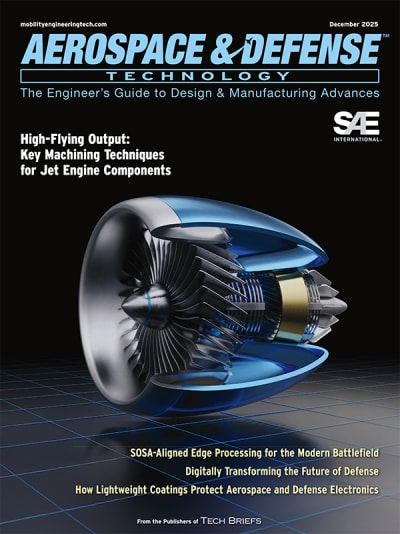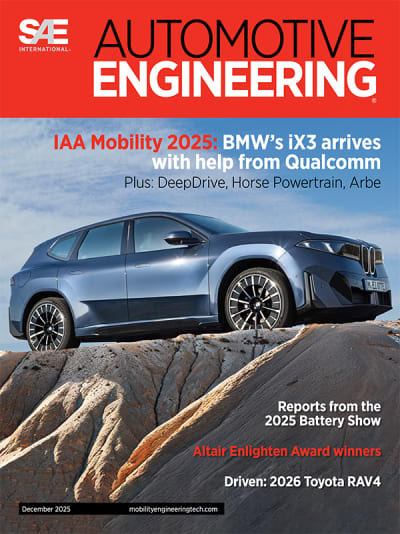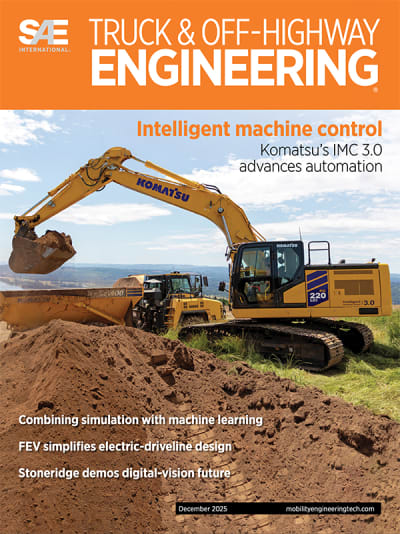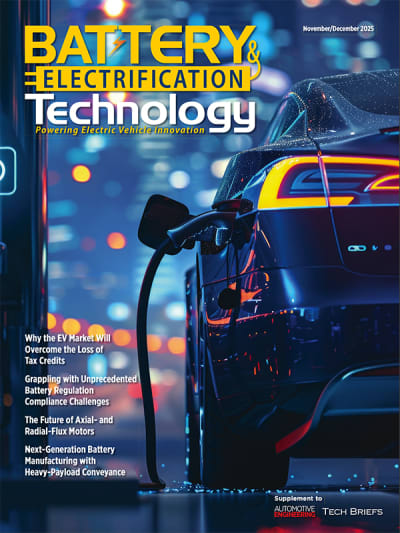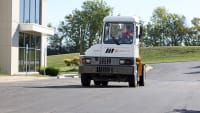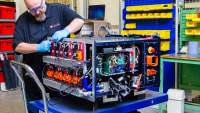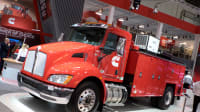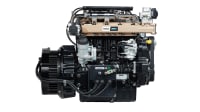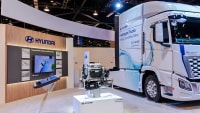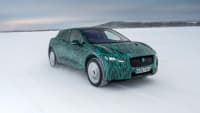Mahle Powertrain Leveraging New Facilities in Electrified Shift
A major investment in infrastructure upgrades aims to strengthen Mahle’s ePowertrain engineering solutions.

Mahle’s Powertrain group (MPT) has announced an ongoing €12M investment in new testing and development facilities. Part of a forward-looking strategy begun over a decade ago, the latest infrastructure investment is directed at improving services offered to its wide OEM clientele, strengthening the supplier’s e-mobility focus. New facilities stemming from the outlay include a battery development center and a second Real Driving Emissions (RDE) install, both located along with MPT headquarters in the U.K.

Based in Northampton, Mahle’s MPT subsidiary has more than 400 employees specializing in engineering services for the design/development/integration of advanced internal combustion engine (ICE) and electrified powertrains. The group operates eight technical centers in the U.K., Germany, U.S., China and Brazil.
“Our portfolio includes electrification, the development of fuel cells, and solutions to support the use of hydrogen and alternative fuels in smart electrified combustion engines. We want to grow further in this area in particular,” explained Simon Reader, MPT’s director of engineering. “We’re in an excellent position to help our customers develop their sustainable mobility solutions.”
New battery development center



MPT will bring what it’s labeling as “Phase 2” of a test center for traction batteries online in Northampton in the third quarter of 2021. The first phase of MPT’s unit designed to test batteries under various climatic conditions went into operation in 2019. The new facility will have a dedicated area for the construction of battery modules and three climatic chambers for testing complete battery packs. The setup is designed to validate, measure and optimize charging and discharging processes under dynamic and steady-state climatic conditions.
The new infrastructure will boost MPT’s electrical test capability to a total of 1.25MW across six separate rigs and chambers. The test environments can be controlled to replicate real-world environments, with temperatures between -40°C and 80°C (-40°to 176°F), and humidity control between 24 and 93%.
“The elusive goal that has been mooted by the industry is the ‘million-mile’ battery,” said Derek Wise, chief engineer for build and test. “It is not simply battery chemistry that is holding back advancement, but the control systems, cooling and charging rates, which have already advanced significantly in recent years as the industry better understands the technology. This next phase will provide our vehicle manufacturer and Tier-1 customers with vital battery technology insight.”
New RDE test chamber
In addition to the battery testing expansion, MPT will open a second RDE test chamber in Northampton, providing space under a wide range of climatic conditions, including the ability to simulate solar loading. The new test chamber will be equipped with a four-wheel-drive chassis dyno, a battery emulator and safety measures to enable testing of hydrogen-powered vehicles. The set up will include blast walls and a domed chamber roof for stray H2 gas collection.
The investment was prompted by heavy demand for the center’s original RDE facility, which opened in 2018. Mahle research estimates 73% of passenger cars globally will still make use of an ICE as part of their propulsion system, and 50% will still employ ICE by 2040. MPT expects demand for the RDE test chambers to continue as ICE development refocuses on hybridized units. “Given that statistic, it therefore made perfect sense to have a second chamber with a battery emulator suitable for EV development,” said David Pates, MPT’s head of engineering.
“Since the original opening in July 2018, our hypobaric and climatic test chamber has been in virtually constant use,” Pates said. “This was even the case during lock-down conditions last year, when we helped manufacturers to sign off whole vehicle test programs despite COVID-19 travel restrictions. While avoiding costly delays at the time, it also points the way to a reliable, faster and more cost-effective way to undertake such programs post-pandemic.”
Evolving ePowertrain strategy
The latest MPT developments are part of an ongoing EV strategy, with additional phases planned to roll out in 2022 focusing on battery-development capabilities. The MPT goal is to address the entire battery-development process, from pack build, test, simulation and analysis to real-world testing and strip-down of battery modules. Next year’s expansion will complement MPT’s recent investments including a new powertrain dyno at its Plymouth, Michigan facility and the new e-axle test facility in Fellbach, Germany.
“Our heritage is founded on ICE development, dating back to the first Cosworth road car engines. However, back in 2008 we could see the way the future of the automotive industry was developing and have been keenly focused on our dual propulsion strategy of ICE and electrification for over a decade now,” said Pates. “Our aim is, as always, to help our customers develop the most effective powertrain possible within their budget and timescale. In that respect at least, nothing’s changed.”
Top Stories
INSIDERRF & Microwave Electronics
![]() FAA to Replace Aging Network of Ground-Based Radars
FAA to Replace Aging Network of Ground-Based Radars
PodcastsDefense
![]() A New Additive Manufacturing Accelerator for the U.S. Navy in Guam
A New Additive Manufacturing Accelerator for the U.S. Navy in Guam
NewsSoftware
![]() Rewriting the Engineer’s Playbook: What OEMs Must Do to Spin the AI Flywheel
Rewriting the Engineer’s Playbook: What OEMs Must Do to Spin the AI Flywheel
Road ReadyPower
![]() 2026 Toyota RAV4 Review: All Hybrid, All the Time
2026 Toyota RAV4 Review: All Hybrid, All the Time
INSIDERDefense
![]() F-22 Pilot Controls Drone With Tablet
F-22 Pilot Controls Drone With Tablet
INSIDERRF & Microwave Electronics
![]() L3Harris Starts Low Rate Production Of New F-16 Viper Shield
L3Harris Starts Low Rate Production Of New F-16 Viper Shield
Webcasts
Energy
![]() Hydrogen Engines Are Heating Up for Heavy Duty
Hydrogen Engines Are Heating Up for Heavy Duty
Energy
![]() SAE Automotive Podcast: Solid-State Batteries
SAE Automotive Podcast: Solid-State Batteries
Power
![]() SAE Automotive Engineering Podcast: Additive Manufacturing
SAE Automotive Engineering Podcast: Additive Manufacturing
Aerospace
![]() A New Approach to Manufacturing Machine Connectivity for the Air Force
A New Approach to Manufacturing Machine Connectivity for the Air Force
Software
![]() Optimizing Production Processes with the Virtual Twin
Optimizing Production Processes with the Virtual Twin

